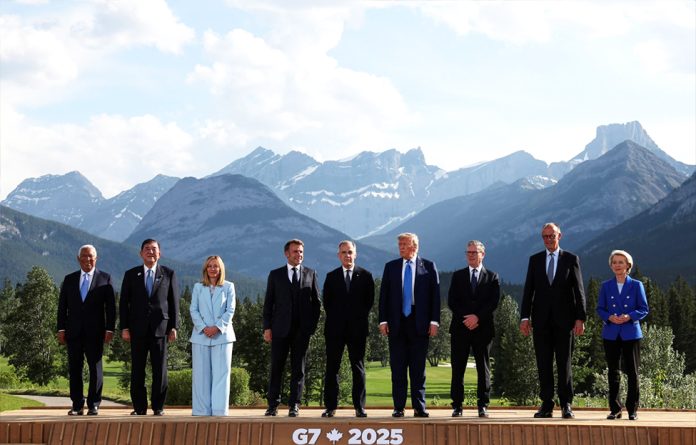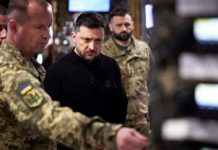Ukrainian President Volodymyr Zelensky travelled to Kananaskis, Alberta, to push for stronger international support in the war against Russia. But a planned joint declaration of support was quietly dropped.
A Canadian government source told RFI that Washington wanted to tone down the language.
“We are ready for peace negotiations, for an unconditional ceasefire. For this, we need pressure,” Zelensky said in a post on his Telegram account.
Although he left without meeting Trump, Zelensky secured 1.27 billion euros in new military aid from Canada, including drones and armoured vehicles. Ottawa also joined the UK in tightening sanctions on Russia’s so-called “ghost fleet” – tankers accused of dodging international oil sanctions.
“These sanctions strike directly at the heart of Putin’s war machine,” said British Prime Minister Keir Starmer.
Still, the G7 did not repeat its past joint condemnations of Russia’s invasion. A summary issued by host Canada said leaders supported Ukraine’s call for a ceasefire and agreed to explore all options to increase pressure on Moscow.
Trump’s exit also exposed tensions with French President Emmanuel Macron, who had suggested the US was trying to broker a ceasefire between Israel and Iran.
“False! He has no idea why I am now en route to Washington, but it certainly has nothing to do with a ceasefire. It’s much bigger than that,” Trump wrote on Truth Social. He added: “Deliberately or not, Emmanuel never understands anything.”
Back in Washington, Trump demanded Iran’s “unconditional surrender” and urged it to agree to a new nuclear deal “before there is nothing left”.
Macron warned that any attempt at regime change by force would bring “chaos” to the country. Before Trump left the summit, G7 leaders issued a joint statement calling for “de-escalation” and reaffirming Israel’s right to defend itself.
The statement accused Iran of being “the principal source of instability and terrorism in the region” and said it must never be allowed to obtain a nuclear weapon.
Iran rejected the statement. “The G7 must abandon its one-sided rhetoric and address the real source of escalation: Israel’s aggression,” Iranian foreign ministry spokesman Esmaïl Baghaï wrote on X.
“Iran is defending itself against cruel aggression. Does Iran really have other choices?”
Credit: rfi









